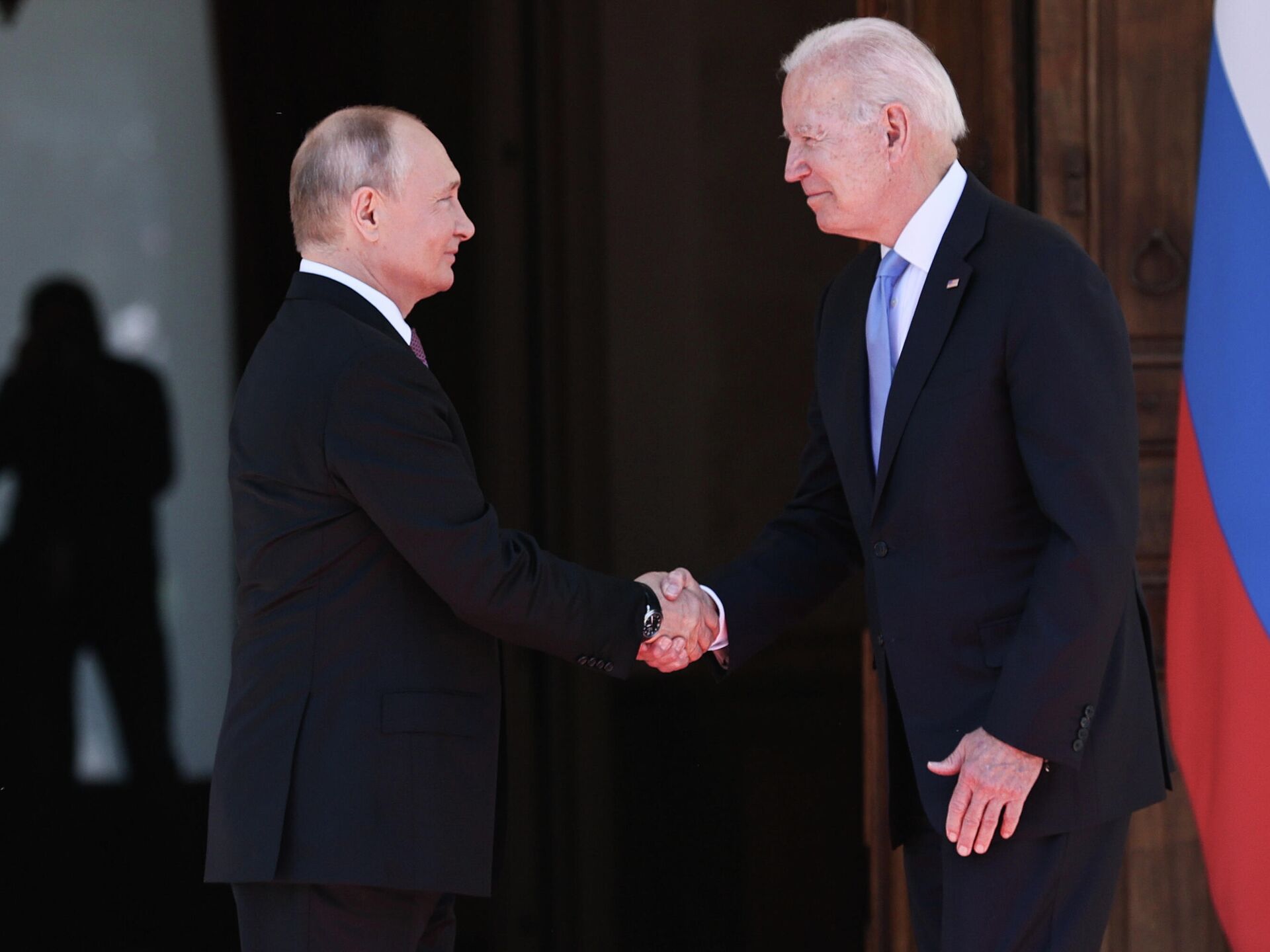
William Dunkerley
William Dunkerley is a media business analyst and consultant based in New Britain, CT. He works extensively with media organizations in Russia and other post-communist countries, and has advised government leaders on strategies for building press freedom and a healthy media sector. He is a Senior Fellow at the American University in Moscow.
Putin must have one powerful brain. I've seen actual evidence that he gives off brainwaves that are apparently being picked up by a variety of mind-sensitive observers. These people are primarily politicians, commentators, and journalists. They in turn tell the rest of us what Putin is thinking. They spew out Putin's secrets and reveal what he's really after.
This all differs from ESP (extra sensory perception) wherein there's someone intentionally trying to send a neuronal message, and another person who is trying hard to receive it. In the case of Putin, he's proclaimed no desire to transmit any inner thoughts. Here the receivers are more like extra sensory voyeurs peering in unnoticed by Putin.
So what are they telling us about Putin's agenda? I did a Google search on the term "Putin wants" in order to see what the man's secret agenda actually is and what he dearly wants. The first thing I discovered is there are a lot of media outlets reporting on this:
--What Putin Wants (Time magazine, March 6, 2014)
--What Putin Wants (The Atlantic, May 21, 2014)
This was starting to get voluminous. Fortunately Foreign Policy magazine stepped in to simplify things with this:
--What Putin Wants, In a Nutshell (May 22, 2014)
But it was vague. Thankfully some other coverage got more specific. For instance:
--Putin Wants to Regain Finland for Russia (The Independent, March 30, 2014)
--Putin Intent on Taking All of Ukraine (New York Times, September 13, 2014)
--Putin Wants to Conquer Belarus, the Baltic States (Huffington Post, March 30, 2014)
By this time we should be concerned and wondering what Putin's up to. What's his endgame? Here are some enlightening answers:
--Putin Wants to Rewrite Europe Boundaries: Hillary Clinton (AFP, March 19, 2014)
--Putin Wants to Restore USSR Borders (Lithuania Tribune, March 19, 2014)
--McCain: Putin Wants to Restore Soviet Empire (Bloomberg, March 17, 2014)
--McCain: Putin Dreams of Days of Russian Empire (Wall Street Journal, June 25, 2013)
Back in 2008 Wonkette even claimed that "McCain Says Putin Wants Alaska Back." McCain has been particularly active in channeling Putin's wants. I did a Google search on the terms "McCain says" "Putin wants" and found 37,400 results. That's one amazing piece of mind reading. McCain certainly qualifies as an extra sensory voyeur extraordinaire.
But all the foregoing reports missed the biggest snoop-scoop of all. The honors for that go to The Spectator with its story, "Vladimir Putin's New Plan for World Domination" (February 22, 2014).
The question that now sticks out is how Putin is going to get what he wants. I found fewer mind reading stories on this angle. The Los Angeles Times sort of took a stab at it:
--What Putin Wants, and How He Plans to Get It (April 20, 2014)
But two other outlets got more specific:
--Putin Wants to Work with Dictators (Philadelphia Inquirer, February 21, 2014)
That doesn't sound like much of a plan. But here's the other:
--Putin wants to Rebuild Berlin Wall (Zee News, September 8, 2014)
Somehow I don't see how that's going to do it either. World domination will be no easy task.
But seriously, how credible do you think any of these claims about Putin's agenda are? Those making the claims offer no substantiation for how they know what's on Putin's mind.
What do you think? Wouldn't a sensible judgment depend upon how much credibility we want to ascribe to a bunch of people who seem to voyeuristically tune in to Putin's brainwaves?
Frankly, I don't believe they have that special gift. Maybe they are just delusional in their conviction that they can read Putin's mind.
Or are we talking about a bunch of charlatans? Just coincidentally, based on their own writings, these people seem to really dislike Putin. Maybe to know him neuronally is to despise him? Or perhaps it is the charlatans that have some sort of hidden agenda.
I explore this in a serious vein in my book Ukraine in the Crosshairs. In short, what I find is that people making and believing proclamations about what Putin wants fit into two general categories. The first group is made up of people who have political or commercial agendas of their own that are well served by the sweeping denigration of Putin, and, indeed, of Russia itself.
Members of the second group more innocently fall into a trap called "confirmation bias." These people have heard the specious stories put out by the first group and have been taken in by them. As a result, each successive fabrication that comes along is accepted unquestioningly. That's because the story likely confirms a bias that has already infiltrated their thinking. This has been going on for years. Some of the people in this second group are even making proclamations of their own now based on the internalized biases.
None of what I've written here is intended to prove anything positive or negative about Putin's agenda. I have no idea what it is. But what I've found is that the most vocal critics who claim to know Putin's mind are indeed charlatans and liars. I give concrete examples in Ukraine in the Crosshairs.
International criticism of foreign leaders need not necessarily be a malicious activity. Done properly, it can provide useful information for the population at large, and it can constitute constructive feedback to the leaders themselves.
But when the criticism is based upon falsehoods and distortions, it serves no one except perhaps the liars and frauds at the source of the stories. When all the oxygen is being taken up by their fabricated allegations and stories intended to deceive, we lose the chance for constructive endeavor. What a shame that is.



_jpg/250px-ElbeDay1945_(NARA_ww2-121).jpg)









